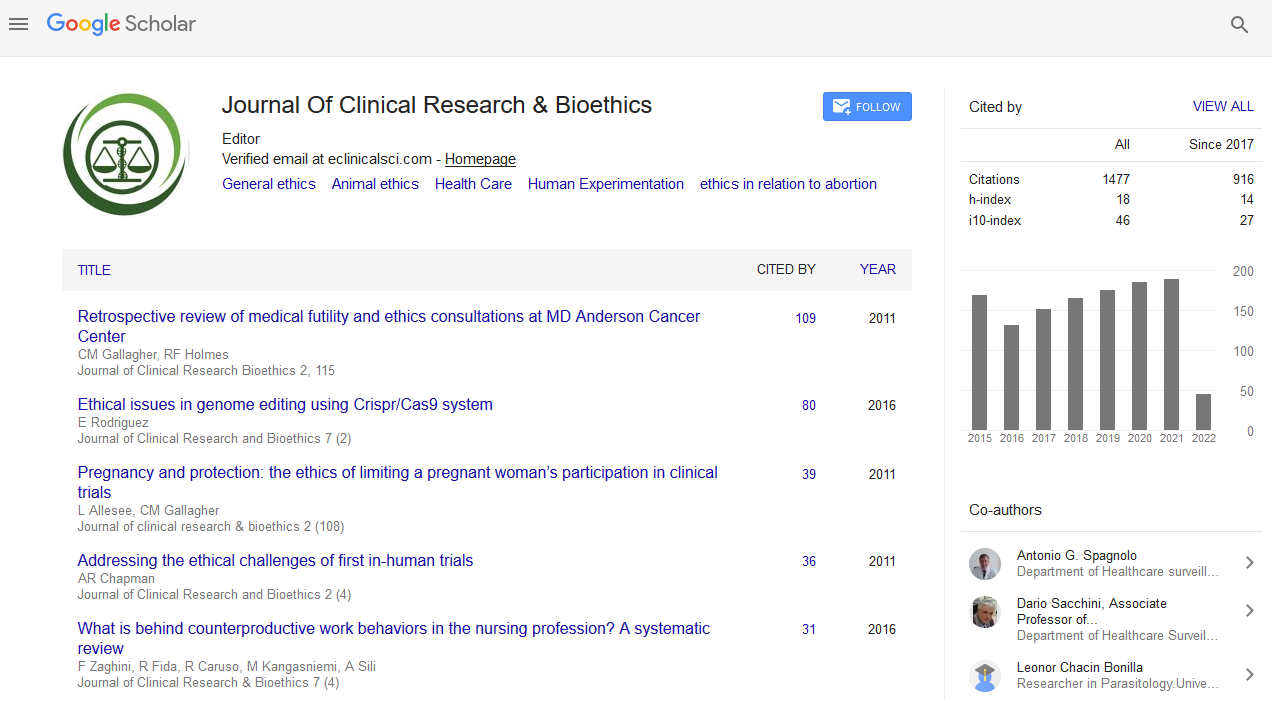PMC/PubMed Indexed Articles
Indexed In
- Open J Gate
- Genamics JournalSeek
- JournalTOCs
- RefSeek
- Hamdard University
- EBSCO A-Z
- OCLC- WorldCat
- Publons
- Geneva Foundation for Medical Education and Research
- Google Scholar
Useful Links
Share This Page
Journal Flyer

Open Access Journals
- Agri and Aquaculture
- Biochemistry
- Bioinformatics & Systems Biology
- Business & Management
- Chemistry
- Clinical Sciences
- Engineering
- Food & Nutrition
- General Science
- Genetics & Molecular Biology
- Immunology & Microbiology
- Medical Sciences
- Neuroscience & Psychology
- Nursing & Health Care
- Pharmaceutical Sciences
Evaluation of Swedish integrated electronic health records and register health care data to serve as a reference population in severe asthma clinical trials: The PACEHR study
3rd International Conference on Advanced Clinical Research and Clinical Trials
September 20-21, 2017 Dublin, Ireland
Stefan Franzen, Christer Janson, Kjell Larsson, Max Petzold, Urban Olsson, Gunnar Magnusson, Gunilla Telg, Gene Colice, Gunnar Johansson and Mats Sundgren
Centre of Registers Västra Götaland, Sweden
Scientific Tracks Abstracts: J Clin Res Bioeth
Abstract:
Objectives: In the development of new drugs for severe asthma, it is a challenge from an ethical point of view to randomize severe asthma patients to placebo, and to obtain long-term safety data due to discontinuations. The aim of this study was to evaluate the feasibility of using electronic health record (EHR) data to create a real-world reference population of uncontrolled asthmatic patients to replace or supplement the concurrent control/placebo group in long-term studies of asthma. Methods: EHR data from 36 primary care centres and a University hospital in Sweden were linked to Swedish mandatory health registers (2005�??2013), creating a population covering 33 890 asthma patients, including data on co-morbidities, risk factors and laboratory/respiratory measurements. A severe asthma EHR reference cohort was established. We used logistic regression to estimate the propensity score (probability) of each RCT or EHR patient existing in the EHR cohort given their covariates. Results: We created an EHR-derived reference cohort of 240 patients, matching the placebo group (N=151) in an RCT of severe asthma. The exacerbation rate during follow-up in the EHR study population was 1.24 (weighted) compared to 0.9 in the RCT placebo group. Patients in the EHR cohort were of similar age as in the RCT placebo group, 50.6 years versus 50.1 years; had slightly higher body mass index 27.0 kg/m2 versus 27.3 kg/m2; and consisted of 40% versus 34% males. Conclusions: The results indicate that EHRs provide an opportunity to supplement, and in the future potentially replace, the control group in RCTs of severe diseases.
Biography :
Stefan Franzén completed his PhD in Mathematical Statistics and after spending more than ten years as a Statistician in the pharmaceutical industry, he currently involved with epidemiological research in diabetes at the public sector Swedish National Diabetes Registry.


